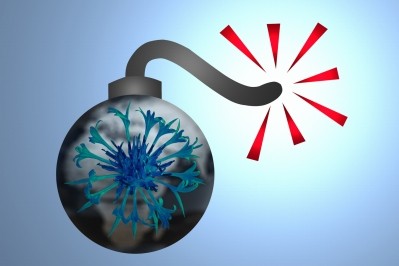Early pancreatic cancer diagnosis could be possible with ‘groundbreaking’ new blood test

The study, published in the journal Metabolites, outlines how researchers were able to show that pancreatic cancer arises through changes in cellular metabolism, by applying targeted mass spectrometry, and that these changes can be measured with a simple blood test.
According to the company, the results could provide highly accurate pancreatic cancer diagnoses earlier than tumor markers or radiographic measures, potentially ushering in a quicker use of therapy.
By comparison, genomic approaches measuring DNA for early detection can often produce false positives and false negatives.
“Pancreatic cancer is the third leading cause of death from cancer largely because it is rarely caught early,” said Dr. Robert Nagourney, senior author.
“The ability to find the disease in its earliest stages, while still curable, could have a major impact. Identifying disease severity using metabolic risk could influence treatment decisions.
“For over a century, scientists have been trying to connect cancer to cellular energy production and metabolism. But it wasn’t until the development of quantitative mass spectrometry that we could test many of these hypotheses.”
The company uses mass spectrometry to measure ‘minute’ concentrations of bio-chemicals in plasma, a technique which identified pancreatic cancer in the blood with ‘near perfect’ accuracy.
The investigators then showed that these metabolic signatures can predict survival for patients who are confronting this highly lethal malignancy.
Metabolomycs believes that these published findings point to an ‘entirely new’ direction in pancreatic cancer research, as it defines the condition as a biochemical disorder – beyond genomics and DNA analyses.
In addition, as well as highlighting patients with pancreatic cancer from normal individuals, the technique can distinguish pancreatic cancer from other forms of cancer, like breast and ovarian.
“What we find is that pancreatic cancers establish a new set of rules for making and using energy that propel these malignant tumors to succeed, all at the expense of the cancer patient’s wellbeing,” Nagourney added.
“Our findings show that these metabolic tests have the potential to identify pancreatic cancers at the earliest stages when it is still possible to cure the patient. They can also be used to define risk groups that help predict a patient’s likelihood of survival.”











